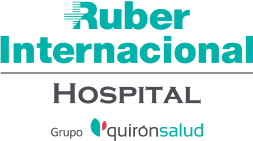Upper Respiratory Tract Infection — Paediatrics
An upper respiratory tract infection or catarrh in the upper airways is a viral infection of the upper respiratory tract (nose, throat) that occurs with fever, sneezing, cough and nasal mucus. Colds are very common during the first few years of life. It is normal for them to have 6 to 8 a year, or even more if the child goes to nursery.
Causes
Viral infection
Treatment
Treatment of these upper respiratory tract infections is aimed at the child feeling more comfortable and reducing the discomfort brought about by the fever, mucus, nasal congestion and other related symptoms. For this:
- Carry out frequent nasal irrigation with physiological saline solution to clear their nose, as well as hydrating the airway. Until the age of 4-5, it is complicated for them to blow their nose properly.
- Avoid a dry environment at home. Put water tanks on the radiators or use humidifiers if the moisture level is very low.
- It is normal for the child to lose their appetite. Do not force them to eat. Offer them liquids.
- Control the temperature and administer the antipyretic usually recommended by their paediatrician if the fever exceeds 38-38.5ºC. There are no medications that cure colds.
- Antibiotics do not cure the cold or avoid complications from it.
WHEN SHOULD YOU GO TO AN EMERGENCY DEPARTMENT?
- If the general condition worsens, the child is miserable, sleepy or very irritable.
- When they find it difficult to breathe: they are breathing very quickly, their ribs are visible, the abdomen moves a lot or their chest sinks.
- If the child is less than 3-months-old and the cold is accompanied by fever.






